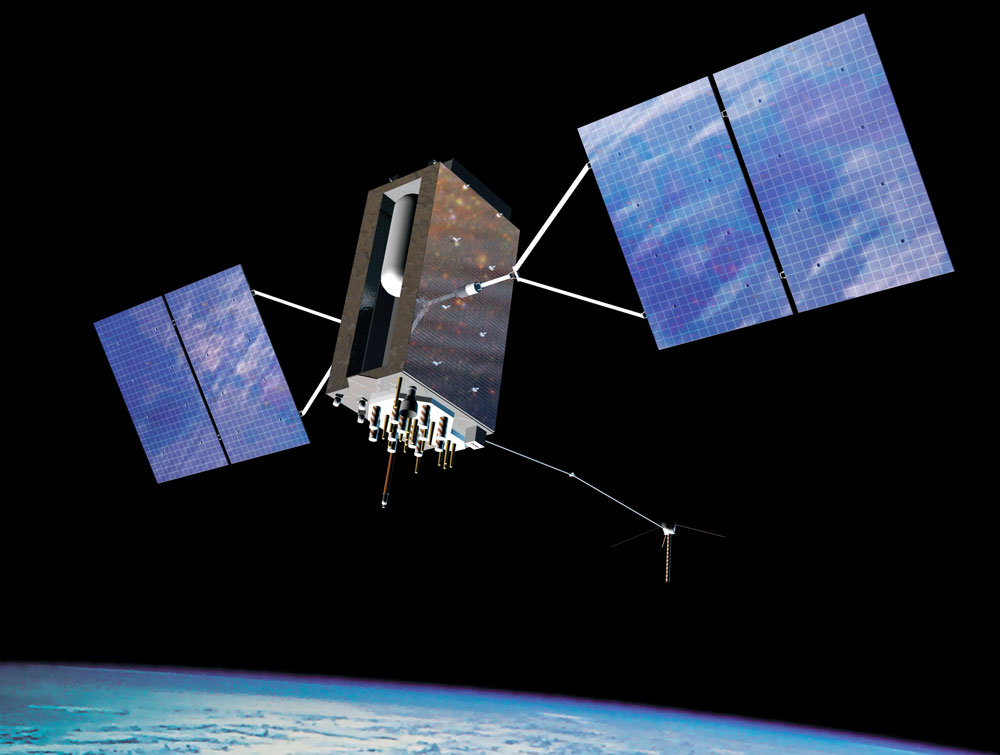
A state appeals court Monday backed the actions of police officers who used information from a car’s GPS system to track down and arrest a suspect in a 2016 Jacksonville murder.
The ruling by a panel of the 1st District Court of Appeal rejected arguments by Brandon Joshua Bailey that the GPS evidence, which was obtained without a warrant, should be suppressed and his first-degree murder conviction should be overturned. Weighing Bailey’s privacy rights, the panel also drew a distinction between the GPS issue and numerous legal disputes in Florida and other parts of the country about whether evidence obtained from cell phones can be used against criminal defendants.
The panel’s main opinion said the “harm inherent in a government’s warrantless gathering of CSLI (cell site location information) is primarily borne of the virtual attachment of the device to its owner—allowing for all-encompassing, perpetual tracking which penetrates private spheres — and of the fact that the overwhelming majority of individuals more or less must own a cell phone. On these key points, the GPS data at issue is not comparable.”
“Because cars do not bear the same attachment to their owners and cannot penetrate private spaces to the same degree, government acquisition of a vehicle’s GPS data does not give rise to the same risk of all-encompassing surveillance as CSLI,” said the 17-page main opinion written by Judge M. Kemmerly Thomas and joined fully by Judge Clay Roberts. “An individual often moves about — both publicly and privately — away from their vehicle. Additionally, as an owner’s vehicle is frequently in operation and driven by others, GPS tracking of cars does not provide police the level of personal surveillance contemplated with CSLI.”
Judge Timothy Osterhaus agreed with the result but wrote that he would not go as far as “holding that individuals lack a reasonable expectation of privacy in the records of their movements recorded by their vehicle’s GPS system.” He said he would support Bailey’s arrest and conviction based on what is known as a “good faith” exception that can allow evidence to be used if police officers acted in good faith.
Bailey, now 30, was convicted of first-degree murder, armed robbery and possession of a firearm by a convicted felon after the February 2016 murder of Dustin Howell, who was found shot to death in a park, according to the ruling. Bailey had been staying at a hotel with a woman who owned a Honda Accord that was equipped with a GPS tracker because of an agreement between her and a financing company.
The woman sometimes gave Bailey permission to use the car but was unaware he took it on the night of the murder. As a result, she called the police and her financing company, which could use the GPS to track the car.
Police contacted the financing company and received GPS records without a warrant. Those records ultimately helped lead to Bailey’s arrest.
Monday’s ruling upheld a decision by a Duval County circuit judge, who turned down a request to suppress the GPS evidence. But the panel sent the case back to circuit court for further consideration of a separate issue related to Bailey’s competency.
–Jim Saunders, News Service of Florida






























MiNiBlOx says
This ruling raises significant concerns about privacy and the extent of police powers. While it’s important to support law enforcement, we must carefully consider the implications for individual rights and the potential for overreach in our digital age. How do we balance public safety with our right to privacy?
Terabox MOD app says
This ruling raises important questions about privacy and the extent of law enforcement’s reach. While I understand the need for law enforcement to access vital information, it feels like a slippery slope. Where do we draw the line on privacy rights in the digital age? It’s crucial that we have ongoing discussions about these issues to protect individual liberties.
Joe D says
One mitigating factor in THIS PARTICULAR CASE, was the car belonged to the defendant’s GIRLFRIEND, not the defendant. SHE called police and the financing company ( who had the GPS device installed with the girlfriend’s permission), after the incident. So, I’m guessing that was a WEAK level of consent by the car’s “owner.” I’m wondering if it would have made a LEGAL difference if the vehicle had been OWNED BY THE DEFENDANT?
Slippery slope in the area of WARRANTLESS SEARCHES indeed!
In the PAST, I would have said, if you didn’t do anything wrong, then you have nothing to HIDE. But in the last few months of Political use of the Justice Department and other Government agencies for RETRIBUTION on past political adversaries of the current Trump administration being targeted SIMPLY because they participated or supported the LEGAL prosecution in Trump’s prior legal proceedings, my PAST thoughts on the issue appear to be somewhat outdated, back to the days when PUBLIC officials were held to the same RULE OF LAW, and were bound by court decisions as the rest of us!?!
Remember: “I am not a CROOK”….former President Richard Nixon during the WATERGATE scandal?
Daman Game says
This ruling raises significant concerns about privacy rights in the digital age. While I understand the court’s reasoning, it feels like we’re treading on dangerous ground when law enforcement can access personal data without a warrant. How can we protect our digital footprints if the courts deem it constitutional?
bounty game says
This ruling raises important questions about privacy and technology in our cars. While I understand the court’s reasoning, it makes me concerned about the extent of surveillance in our daily lives and whether individuals truly have control over their data. It’s a complex issue that definitely merits further discussion.